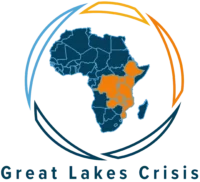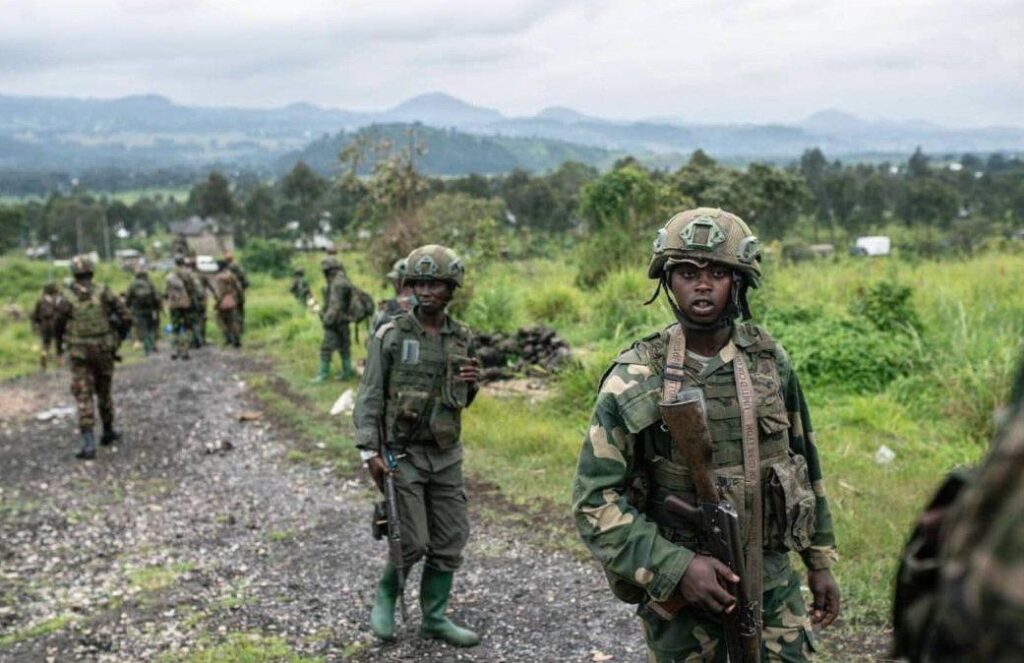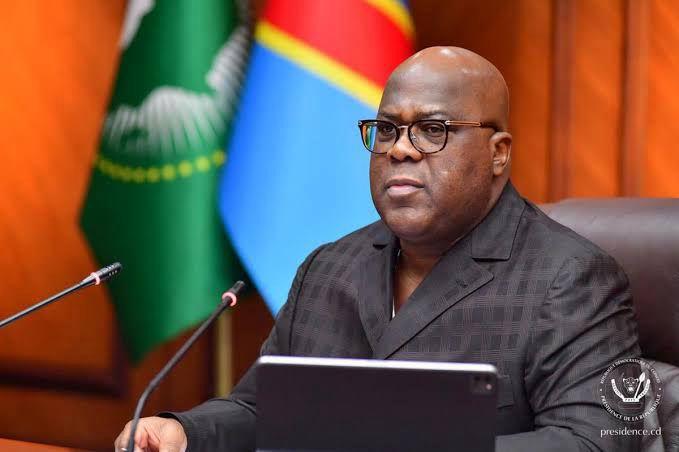As Kenya positions itself as a central player in East and Central Africa’s politics, President William Ruto’s foreign policy is drawing both intrigue and outrage. From Sudan’s conflict-ridden power struggle that has started in April 2023 to the persistent chaos in the Democratic Republic of Congo (DRC), Kenya seems to have adopted a curious and dangerous role: a haven for exiled leaders and rebel movements. But is Ruto’s administration fostering dialogue and peace, or is Nairobi becoming a breeding ground for instability and coup plotters?
This article explores Kenya’s controversial engagement with Sudan’s Rapid Support Forces(RSF) militia and the AFC/M23 rebel coalition in the DRC, questioning whether this is a strategic attempt at regional influence or a reckless embrace of destabilization. We will weigh the implications of these decisions on East African security and Kenya’s diplomatic standing, while addressing the accusations and possible motivations behind Ruto’s foreign policy.
Sudan: The KICC Controversy and RSF Debacle
On February 18, 2025, Sudan’s Ministry of Foreign Affairs issued a scathing statement condemning Kenya for hosting an event at Nairobi’s Kenyatta International Convention Centre(KICC) in Nairobi where leaders of the Rapid Support Forces (RSF); a militia accused of ongoing genocide; signed a political agreement Sudan’s government described this as a blatant endorsement of terrorism and a violation of international law, the UN Charter, and the African Union’s founding principles.
In response, Sudan recalled its ambassador to Kenya, a clear signal of diplomatic breakdown. The RSF, notorious for its brutal campaigns and human rights abuses, is accused of ethnic cleansing (Human Right Watch, 2024) and mass atrocities (Musambi,2025). Kenya’s willingness to provide a platform for this group raises serious questions: Is Ruto’s administration pursuing peace by engaging all actors, or is it legitimizing a militia responsible for genocide?
Supporters of Ruto’s approach argue that Sudan currently has no legitimate government, as both the Sudanese Armed Forces (SAF) and the RSF seized power through military coups. With IGAD’s peace talks failing and international actors like the UAE and Russia backing different factions, Kenya’s intervention may be seen as a pragmatic attempt to fill a diplomatic vacuum.In this context,engaging all stakeholders,even controversial ones,might be the only viable path to peace. However, critics see this as dangerous overreach, one that risks aligning Nairobi with war criminals and alienating legitimate governments in the region.
The DRC: An alliance of Rebels in Nairobi
Kenya’s involvement in the DRC’s conflict further complicates its regional posture. On December 15, 2023, Nairobi’s Serena Hotel hosted the launch of the Alliance Fleuve Congo, a political and military coalition led by exiled Congolese opposition figure Corneille Nanga(Agence France-Press,2023). The alliance, which includes the M23 rebel group and other armed factions, aims to “save the country” by uniting political, social, and military forces to restore peace in the DRC.
This move was met with immediate backlash. The DRC government recalled its ambassador to Kenya, accusing Nairobi of enabling rebel activity and undermining Kinshasa’s sovereignty. The M23, a key member of this alliance, has long been designated a terrorist group by the DRC government due to its insurgency and foreign backing, notably from Rwanda.
Adding to the intrigue, confidential sources allege that DRC President Félix Tshisekedi financially supported anti-Ruto protests in Nairobi last year in a bid to destabilize Kenya’s government. If true, this suggests a dangerous tit-for-tat dynamic that could escalate conflict between the two nations and fracture regional unity.
Ruto’s Endgame: Strategic Influence or Diplomatic Miscalculation?
So, what is Ruto’s game plan? Is Kenya positioning itself as a power broker for East African peace, or is it merely opening its doors to insurgents and exiled leaders for short-term gains?
One interpretation is that Ruto sees an opportunity to elevate Kenya’s influence in the region by engaging all sides of these conflicts, filling the diplomatic void left by ineffective AU and IGAD interventions. By offering Nairobi as neutral ground for negotiations, Ruto may hope to shape peace processes and establish Kenya as a regional powerhouse.
However, this approach carries enormous risks. Hosting groups accused of war crimes and rebellion tarnishes Kenya’s credibility and could alienate traditional allies. It also invites retaliatory measures, as seen with Sudan and the DRC recalling their ambassadors. Moreover, legitimizing non-state actors undermines established governments and emboldens insurgents, potentially prolonging conflicts rather than resolving them.
The Dilemma of Diplomacy: Weighing the Risks and Rewards
Supporters of President William Ruto’s approach argue that, in the absence of legitimate governments in Sudan, engaging opposition groups presents the only viable path toward fostering inclusive dialogue and achieving long-term stability. They contend that traditional diplomatic channels have largely failed and that bold, unconventional measures are necessary to prevent further bloodshed and chaos.
On the issue of the Democratic Republic of Congo (DRC), During a round table media conference on the 18th of december 2023, Ruto defended Kenya’s decision not to comply with the DRC government’s request to arrest exiled opposition politicians. Speaking to journalists, he asserted that such a move would be undemocratic and contrary to Kenya’s core principles. (The star, 2023) “Kenya is a democracy. We cannot arrest anybody for issuing a statement. We arrest criminals — not people expressing their views,” Ruto emphasized.
These two approaches do have some merit. In both Sudan and the DRC, state authority has collapsed, and official governments have lost control over vast territories. Traditional peace processes have stagnated, often hindered by the competing geopolitical interests of regional and international actors. By offering a platform for alternative voices, Kenya could help foster more inclusive dialogue and chart a path toward lasting peace.
However, critics warn that Kenya’s actions amount to dangerous diplomatic adventurism, undermining respect for national sovereignty and emboldening insurgent groups. By providing a platform for coup plotters and militias, Ruto’s administration risks turning Nairobi into a revolving door for exiled regimes and destabilizing forces.
Others see Ruto’s approach as a necessary evil. With both Sudan and the DRC lacking effective governance, engaging non-state actors might be the only realistic way to push for meaningful dialogue. Given the involvement of powerful international players; the UAE, Russia, and Egypt in Sudan, and Rwanda and Uganda in the DRC ; Kenya’s proactive diplomacy could help balance competing interests and prevent the total collapse of these fragile states.
Conclusion: A Crossroads for Kenya’s Foreign Policy
Kenya stands at a crossroads. Ruto’s foreign policy—whether strategic or misguided—has thrust the country into the center of East and Central Africa’s most volatile conflicts. By hosting political exiles and armed groups, Nairobi has become both a mediator and a magnet for controversy.
As Sudan and the DRC recalled their ambassadors and tensions escalated, Kenya must carefully recalibrate its approach. The pursuit of regional influence should not come at the cost of credibility and stability. In the complex chessboard of East African politics, every move carries consequences; and the world is watching Kenya’s next one.
Works Cited
The star. (2023, December 17). I rejected DRC demand to arrest Congolese politicians-Ruto. Nairobi, Kenya.
Agence France-Press. (2023). DR Congo opposition figure anounces alliance with rebels. The East African.
Evelyne, M. (2025, February 23). Sudan’s paramilitary RSF and allies sign a deal to pave the way for parallel government. Nairobi, Kenya.
Human Rights Watch. (2024, May 9). Sudan; Ethnic Cleansing in West Darfour.


